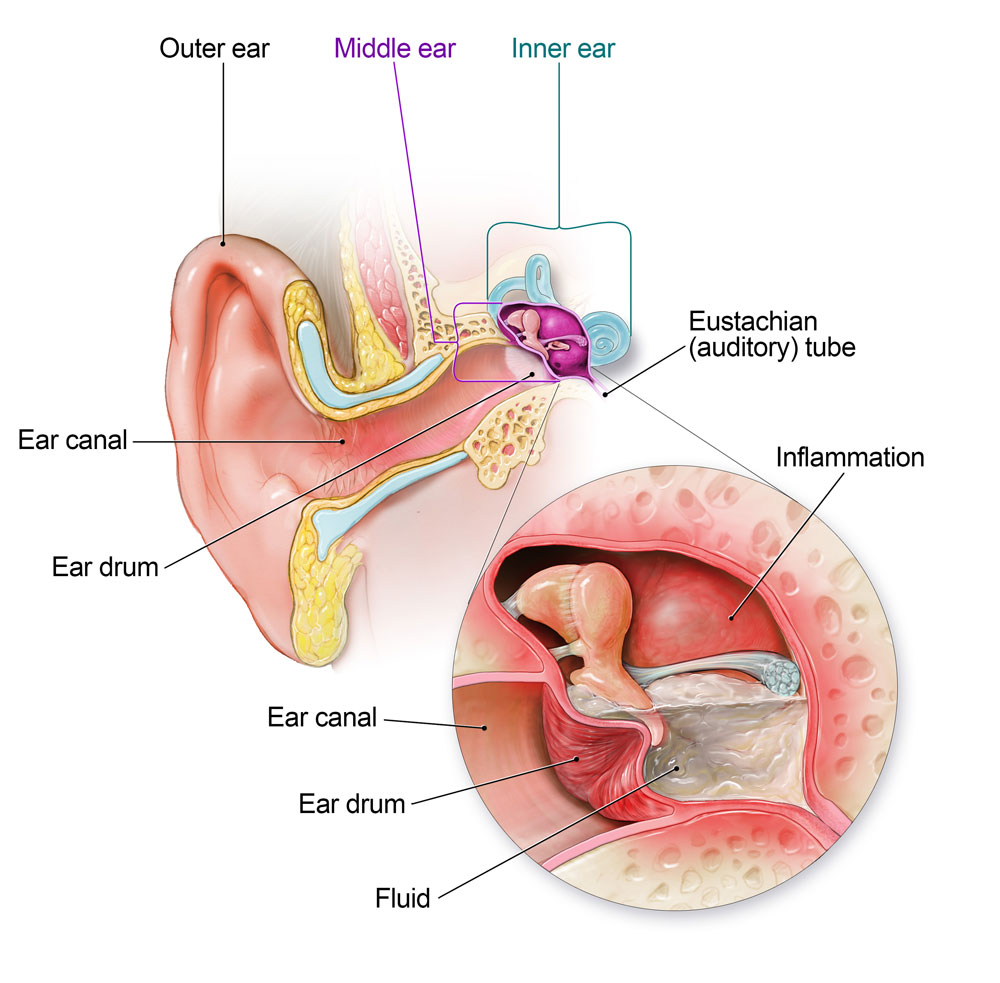We are no strangers to the pain of an ear infection, and have dealt with them in childhood with our son, but also as an older child into his teen years. Fortunately as he has got older, they have decreased in frequency, and he had grommet surgery when he was three which made a huge difference to his ear health.
But what is an ear infection and how do they happen?
An ear infection, medically known as otitis media, is a common condition characterized by inflammation or infection of the middle ear. The middle ear is the part of the ear located just behind the eardrum, and it houses tiny bones that transmit sound vibrations. Ear infections are particularly prevalent in children, although they can affect individuals of any age. They can be very painful and unpleasant to deal with and can impact your hearing if they are left unmangaged or not investigated.

The most common cause of ear infections is bacterial or viral infections, often following a respiratory illness such as a cold or flu.
The Eustachian tube, which connects the middle ear to the back of the throat, can become blocked during these illnesses, leading to a buildup of fluid in the middle ear. This stagnant fluid creates an ideal environment for bacteria or viruses to thrive, leading to infection.
Symptoms of an ear infection may include ear pain, discomfort, hearing loss, and fluid drainage from the ear. In children, symptoms can be more subtle and may include fussiness, tugging at the ear, and difficulty sleeping and refusal to eat due to pain.
You can treat an ear infection:
Treatment for ear infections typically involves antibiotics for bacterial infections, while viral infections may resolve on their own. Pain relievers and warm compresses can help alleviate symptoms. In some cases, if the infection is recurrent or severe, surgical interventions such as the insertion of ear tubes may be recommended to help drain fluid and prevent future infections.
When an ear infection gets worse?
Sometimes an ear infection can become so bad that it causes the ear drum to burst or perforate, which is extremely painful and can leave you with long term ear issues.
When an ear drum perforates, it means that there is a hole or tear in the thin membrane known as the tympanic membrane, which separates the outer ear from the middle ear. The tympanic membrane plays a crucial role in transmitting sound vibrations from the outer ear to the middle ear, where the auditory ossicles (small bones) amplify these vibrations and send them to the inner ear for further processing.
The perforation of the ear drum can result from various causes, including infections, trauma, changes in air pressure, or exposure to loud noises.
- Pain: Perforation of the ear drum may cause immediate pain, especially if the rupture is due to infection or injury.
- Hearing Loss: A perforated ear drum can lead to temporary hearing loss. The severity of hearing loss can vary depending on the size and location of the perforation.
- Fluid Drainage: Fluid from the middle ear may leak through the perforation, leading to ear drainage. This drainage might be clear, pus-like, or bloody, depending on the cause of the perforation.
- Vertigo or Dizziness: Some individuals may experience dizziness or a sensation of spinning, particularly if the perforation is associated with an inner ear infection.
- Increased Risk of Infection: The opening created by the perforation provides a pathway for bacteria or viruses to enter the middle ear, increasing the risk of infection.
- Tinnitus: Perforation can sometimes cause ringing or buzzing sounds in the affected ear, known as tinnitus.
In many cases, small perforations can heal on their own, while larger or persistent perforations may require medical intervention. Treatment may involve antibiotics to prevent or treat infection, keeping the ear dry, and sometimes surgical procedures to repair the perforation.
Ear infections can be treated but it is always a good idea to seek medical advice for yourself if you are suffering or your child, to make sure there are no long term issues, particularly if they keep reoccurring or cause the ear drum to perforate. You can try and prevent an ear infection from occurring, too, with some simple tips and actions that we have learned from our own experience.